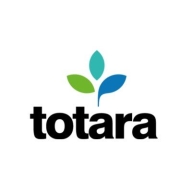

Moodle and Totara Learn are competing in the e-learning space, both providing robust learning management solutions. Totara Learn seems to have the upper hand due to its advanced feature set tailored for corporate environments.
Features: Moodle provides an open-source platform with modularity, offering features like a vast array of plugins, flexible learning paths, and a strong community support base. Totara Learn enhances these capabilities with personalized learning paths, robust reporting capabilities, and performance management tools, catering specifically to corporate needs. The distinction is in Totara's rich enterprise solutions compared to Moodle's community-driven options.
Ease of Deployment and Customer Service: Moodle is known for its accessibility and flexibility, supported by community resources, making it ideal for institutions with technical skill sets. Totara Learn, in contrast, provides a structured deployment process with premium support services, offering a guided approach for corporate clients, ensuring seamless transition and continued assistance.
Pricing and ROI: Moodle, being open-source, offers low initial setup costs, which is economically advantageous for budget-sensitive institutions, often resulting in higher long-term ROI. Totara Learn demands a higher upfront investment due to licensing fees, yet the investment is justified through its advanced feature set and tailored support, appealing to organizations emphasizing comprehensive capabilities over initial expenses. The primary difference is Moodle's cost-effectiveness versus Totara's greater ROI through extensive offerings.
| Product | Market Share (%) |
|---|---|
| Moodle | 7.0% |
| Totara Learn | 1.8% |
| Other | 91.2% |


| Company Size | Count |
|---|---|
| Small Business | 10 |
| Midsize Enterprise | 7 |
| Large Enterprise | 11 |
Moodle is an open-source LMS offering course management, community plugins, and comprehensive integrations. Its modular design supports extensive customization, making it suitable for education sectors and corporate training.
Moodle provides a robust platform for creating and managing educational content. It integrates seamlessly with tools like Zoom and Teams, enhances cheat prevention with exam question shuffling, and supports advanced customization and accessibility. While its flexibility caters to diverse educational and corporate environments, Moodle faces challenges with login issues, improving mobile functionality, and a cumbersome setup process. Efforts to enhance documentation and ensure ease of navigation are ongoing. Its integration capabilities with ERP systems and support for LTI tools further position Moodle as a valuable resource for both educators and learners.
What are Moodle’s key features?In educational and corporate industries, Moodle is implemented for exam scheduling, resource management, and online assessments. It facilitates instructor-student interactions and is adaptable for both on-premises and cloud deployments. Organizations leverage Moodle for customizing employee certifications and training programs, benefiting from its versatile access controls and management tools.
Totara Learn is a flexible learning management system designed to meet diverse educational needs. Its adaptability supports personalized learning environments and facilitates efficient training across sectors.
Totara Learn provides a comprehensive platform that enables organizations to deliver effective learning experiences while adapting to changing requirements. Known for its customizable nature, it allows modifications to better align with specific institutional processes. It supports integrations that enhance the learning ecosystem, making it efficient for businesses looking to improve employee training and development.
What are the key features of Totara Learn?Industries like healthcare, retail, and finance implement Totara Learn to address specific training challenges. Its flexibility aids in meeting compliance standards, onboarding processes, and continuous professional development unique to each sector, ensuring tailored learning experiences that support strategic goals.
We monitor all Learning Management Systems (LMS) reviews to prevent fraudulent reviews and keep review quality high. We do not post reviews by company employees or direct competitors. We validate each review for authenticity via cross-reference with LinkedIn, and personal follow-up with the reviewer when necessary.